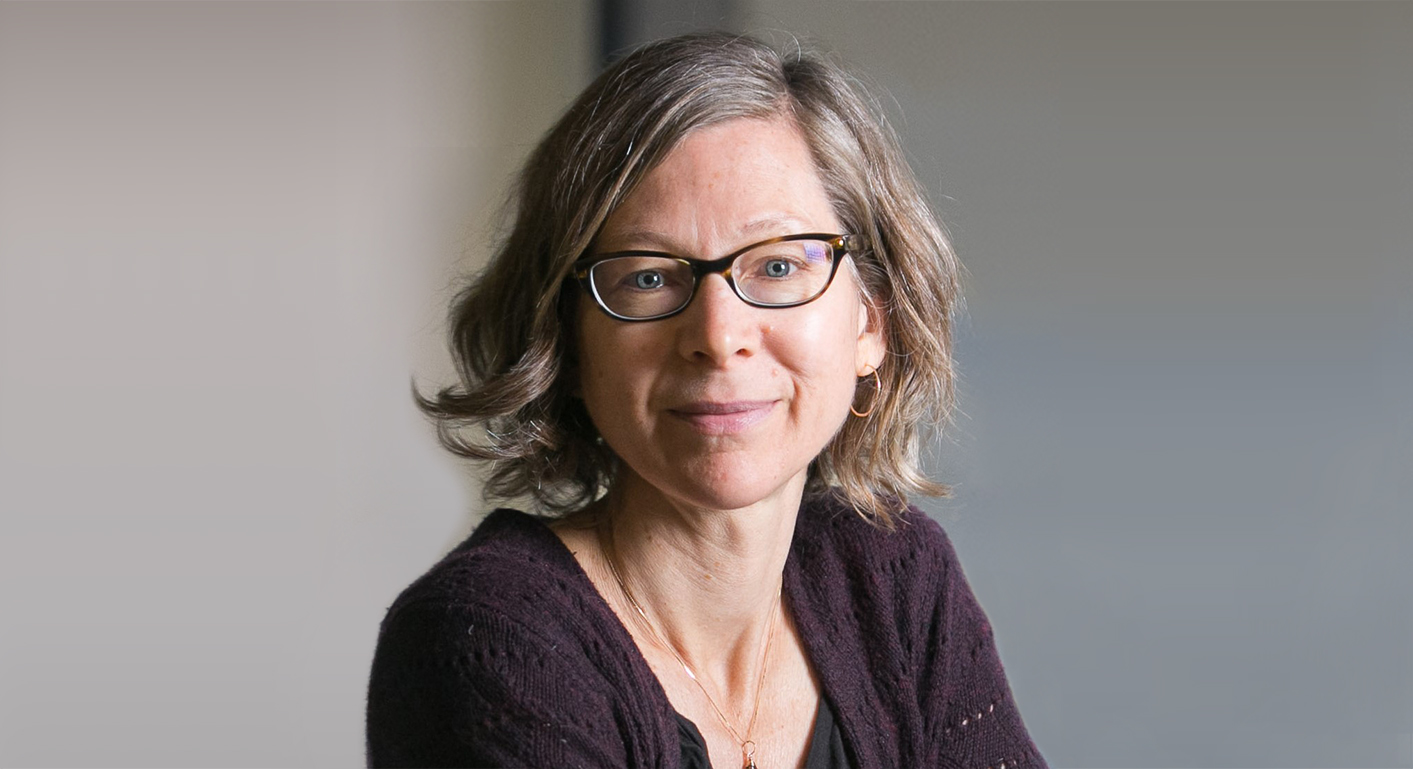Talking TV
Kathleen Collins probes her own relationship with television, and society’s
Author: Chase Brush

In the age of streaming services like Netflix and Amazon, it’s no surprise that more people than ever are watching TV. While traditional primetime viewership may be on the decline, the number of people consuming media via online mediums has skyrocketed: today, over 60 percent of people get their TV content from online sources, up more than 27 percent in two years, according to a recent study.
Indeed, society’s love of television can feel like a new phenomenon. But for some TV lovers — like John Jay Library Professor Kathleen Collins — it has been a lifelong affair. Collins’s latest book, From Rabbit Ears to the Rabbit Hole: A Life with Television, explores the impact that television has had not only on her own life, but on society as a whole.
“It’s hard to argue with the fact that TV is an enormous part of our lives,” Collins says. “Even if you don’t watch TV or have a TV, it’s still an inescapable force.”
A former journalist who once aspired to work as a TV critic, Collins has spent much of her personal and professional life thinking about the medium. Born in the 1960s, she grew up watching shows like All in the Family, a trailblazing sitcom when it debuted in 1971. She began thinking more critically about the role TV can play while working as a librarian, and started incorporating the subject into her scholarly work. “I’ve always been what I officially call a ‘TV person,’” Collins says. “So when I became an academic librarian and had to publish or perish, I brought my love of TV along with me.”
As a scholar, Collins has authored a number of books and papers on television, but her latest is personal — she calls it a “combination memoir and cultural meditation.” There’s no bibliography, she notes, and the narrative is more literary than academic. But by taking a more relaxed approach to the subject, Collins says she was able to explore her relationship to TV in a more nuanced way. “TV has been my companion my whole life,” she says. “It has brought me a lot of joy and nostalgia, and has shaped me in so many ways.”
By tracking the evolution of television in her own life, Collins’ book also highlights the shifting role it has played within society at large. In earlier eras of TV, she notes, the popularity of a limited number of shows served to bring people together. “It was easier to talk about shows with each other and generate conversation,” she says. Today, however, the proliferation in content and content makers has created a more fractured media environment. But that’s not necessarily a bad thing, she adds. “Today there’s something for everyone. And a lot of it is really good quality.” Collins takes the same varied approach to media in general: she is also the architect of a podcast called Indoor Voices, which features fellow CUNY faculty talking about their work.
For Collins, television is an important cultural invention, and she refutes the notion that it is little more than a distraction. “I am not one of those voices that sort of has this automatic eye-rolling reaction to TV, that it’s this idiot box or just a waste of time,” Collins says. “Television can be thought-provoking, and it can reflect who we are as a society.”
“Also, they’re not boxes anymore,” she adds.
